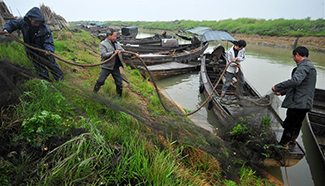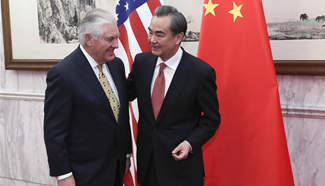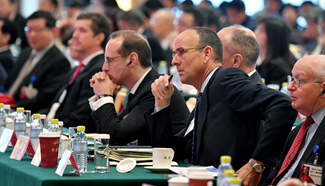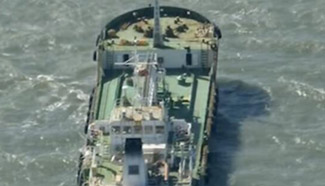by Xinhua writers Zhu Dongyang, Luo Jun
BEIJING, March 18 (Xinhua) -- Former U.S. Secretary of Defense William Perry said here Saturday that concerted efforts of the international society are in dire need to save the world from an escalating possibility of "nuclear extinction."
Perry made the remarks in an interview with Xinhua after attending a seminar on the newly-released Chinese edition of his book "My Journey at the Nuclear Brink."
"Today the likelihood of a nuclear catastrophe is greater than it was during the Cold War," said Perry, noting the Chicago-based Bulletin of the Atomic Scientists in January moved the symbolic "doomsday clock" to its closest time to midnight in 64 years.
"People all over the world, regardless of their nationality, should be interested in working to give future generation a chance to live their lives without fear of nuclear extinction," he said.
Perry said he had been awaken from a sound sleep by a telephone call at 3:00 a.m. some day in 1979. It was from a military general at the North American Aerospace Defense Command, who said his computers showed 200 missiles on the way from the Soviet Union to the United States.
It took Perry, the then under-secretary for research and engineering, several days to determine what he called an "human error of our system."
"When the computer operators changed shift, the new operator mistakenly put a training tape in the computer, which was designed to look like a realistic attack scenario," he recalled. "With all of its safety features, the system was still vulnerable to a single person erring, potentially bringing about the end of civilization."
Besides the high risk of an accidental nuclear war, the world has also faced with the threat of regional nuclear war and nuclear terror attack, which by no means are "a remote possibility" and could have "serious and long-lasting consequences around the world," Perry said.
Hailing China's commitment to the global denuclearization, the former U.S. defense chief said the country "for decades had set an example of restraint by maintaining only a minimum deterrent force."
"All the leading powers today are threatened to some degree by terrorism, and in the worst possible case by nuclear terrorism," said the leading U.S. expert on advanced weaponry technology. "The big motivation for the United States and China to work together, I guess, is to combat terrorism and nuclear proliferation."
The WWII veteran, who has spent his retirement years advocating denuclearization, is in Beijing for the seminar hosted by CITIC Foundation for Reform and Development Studies, a Beijing-based think tank.












